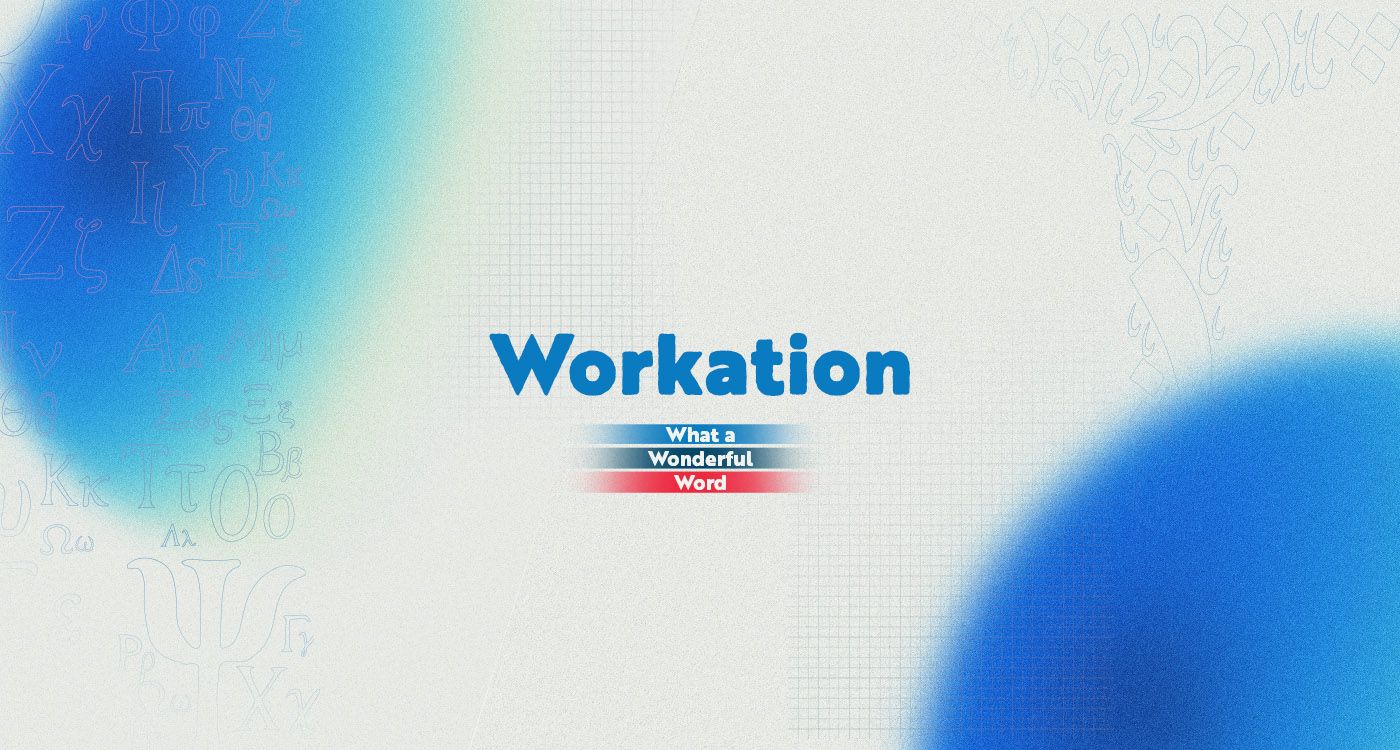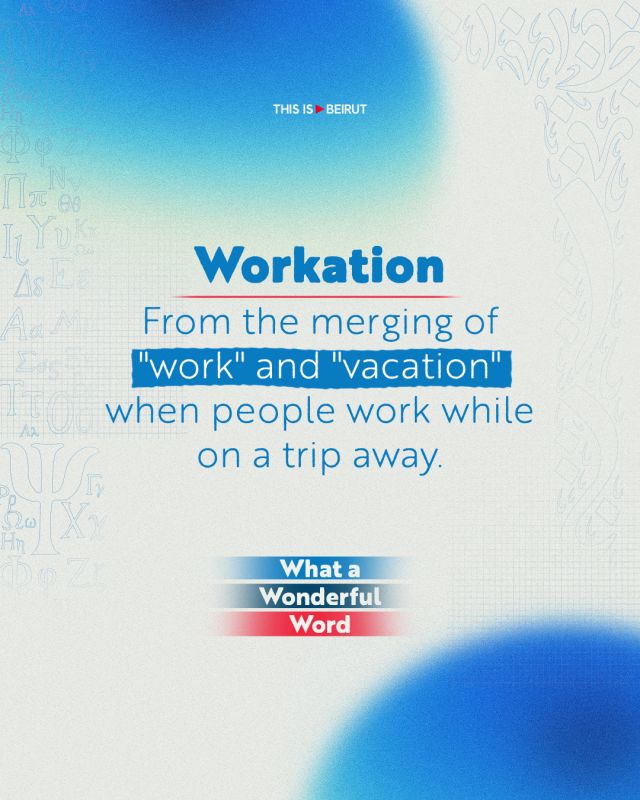
Blurring the line between leisure and labor, the “workation” has become a buzzword of the post-pandemic era. More than a passing fad, it reflects how digital nomadism, hybrid models and the quest for balance are reshaping the culture of work worldwide.
Half-holiday, half-office, workation embodies the new era of remote flexibility. It shows how digital nomadism and post-pandemic lifestyles are reshaping professional culture. Behind its playful sound lies a serious question: how do we balance productivity, freedom and the right to disconnect?
A Linguistic Marker of Our Times
Born from the fusion of work and vacation, the term workation designates a stay where professional obligations follow you far from home, often in a setting more associated with leisure than deadlines.
It appeared on Oxford Dictionaries’ 2020 shortlist of pandemic-era neologisms. Though not yet fully legitimized in most dictionaries, this word is being monitored for evidence of usage.
The idea is simple: instead of staying chained to the home office, employees take their laptops to a holiday setting — beaches, mountains or historic cities — while maintaining their workload. Unlike a traditional vacation, they are still “on the clock,” but the environment shifts.
This shift is not marginal: according to Statista, the number of digital nomads* in the United States has surged to 18.1 million in 2024, nearly doubling in just five years. Millennials make up the largest share of this group — about 38% of all digital nomads — though Gen Z is rapidly joining the ranks. Interestingly, digital nomadism is not confined to freelancers: 10.2 million nomads in 2024 held traditional jobs, while 7.9 million worked independently. During the same year, around 66 million people from the US expressed interest in working as a digital nomad.

Meanwhile, in Great Britain, 28% of working adults were dividing their time between home and other locations, during the period of January till March 2025, according to the Office for National Statistics (ONS). The proportion of hybrid workers has gradually risen since March 2022, the source states. Today, a hybrid-working model, involving travel to work part of the time and work at home part of the time, has become the “new normal” for more than 1 in 4 workers.
These findings suggest that digital nomadism is no longer a fringe movement but a powerful cultural shift.
Escaping or Extending the Office?
To its defenders, the workation is the antidote to burnout. Freed from the closed spaces, employees say they gain perspective, creativity and even productivity. Studies show that up to 86% of those who tried it felt more efficient.
Yet psychologists and career coaches warn against letting work invade leisure completely. Without setting limits, the line between professional and personal life can blur to the point of erasure. The healthiest workations are those that complement — rather than replace — traditional time off.
Worse, the model risks widening divides: possible for white-collar jobs with portable tools, but inaccessible to workers whose presence is tied to a factory, a classroom or a hospital.
Besides, workations raise complex legal questions. Labor law, social security contributions, tax rules and even data protection vary across borders. Legal experts point out that while the freedom is appealing, companies must define clear policies to avoid liability. This is one reason why, despite growing popularity, many organizations remain hesitant to formalize the practice.
Another Paradox of Modern Societies
Workation illustrates another paradox of our modern life: the more technology allows us to escape, the harder it becomes to truly switch off. For some, it is an opportunity to travel without sacrificing career stability. For others, it is simply the office in disguise, exported under the sun. Perhaps the real luxury today is not to work everywhere, but to reclaim the right, occasionally, not to work at all.
Digital nomads generally combine remote work and travel for various reasons and lengths of time. Passionate about travelling and new adventures, they know how to make the most of new technologies and only need an internet connection to work from anywhere in the world. (Source: Statista)





Comments